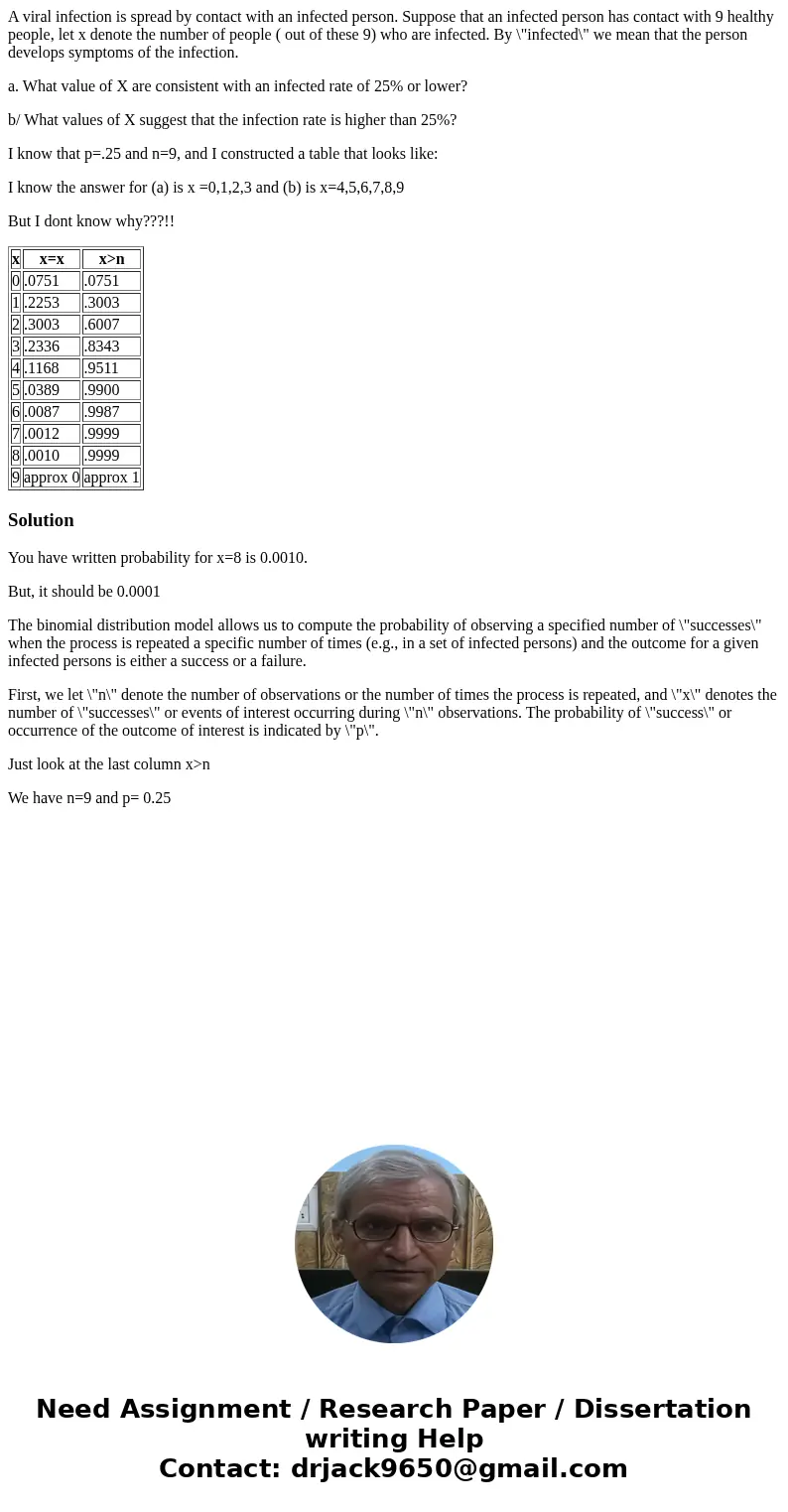A viral infection is spread by contact with an infected pers
A viral infection is spread by contact with an infected person. Suppose that an infected person has contact with 9 healthy people, let x denote the number of people ( out of these 9) who are infected. By \"infected\" we mean that the person develops symptoms of the infection.
a. What value of X are consistent with an infected rate of 25% or lower?
b/ What values of X suggest that the infection rate is higher than 25%?
I know that p=.25 and n=9, and I constructed a table that looks like:
I know the answer for (a) is x =0,1,2,3 and (b) is x=4,5,6,7,8,9
But I dont know why???!!
| x | x=x | x>n |
|---|---|---|
| 0 | .0751 | .0751 |
| 1 | .2253 | .3003 |
| 2 | .3003 | .6007 |
| 3 | .2336 | .8343 |
| 4 | .1168 | .9511 |
| 5 | .0389 | .9900 |
| 6 | .0087 | .9987 |
| 7 | .0012 | .9999 |
| 8 | .0010 | .9999 |
| 9 | approx 0 | approx 1 |
Solution
You have written probability for x=8 is 0.0010.
But, it should be 0.0001
The binomial distribution model allows us to compute the probability of observing a specified number of \"successes\" when the process is repeated a specific number of times (e.g., in a set of infected persons) and the outcome for a given infected persons is either a success or a failure.
First, we let \"n\" denote the number of observations or the number of times the process is repeated, and \"x\" denotes the number of \"successes\" or events of interest occurring during \"n\" observations. The probability of \"success\" or occurrence of the outcome of interest is indicated by \"p\".
Just look at the last column x>n
We have n=9 and p= 0.25

 Homework Sourse
Homework Sourse